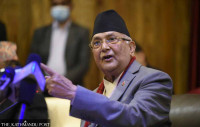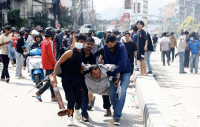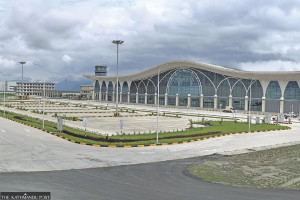Opinion
Book of my life
My academic qualifications and professional credentials have not helped me write a book
Jagadish C. Baral
It is not that I did not intend to share my long, 32 years of service experience in the government. To the contrary, I had decided to write a book on my story as soon as I had taken a retirement a couple of years ago. I had considered this as being imperative. With all my national and foreign education degrees, and with such a great variety of experiences—from the grassroots level (District Forest Officer in different districts) to far higher levels (Planner in the National Planning Commission)—I strongly believed that it was my moral responsibility to share my experiences to the public on how the bureaucracy works. I intended to inform the lay people on a number of matters: how promotion/demotion may occur; how transfers are made; how national policies and programmes are drawn; how nominations on national and international conferences are made; how government employees tend to support or antagonise local development or conservation initiatives. Another reason why I felt that I needed to write of my experiences was because it was uncommon among many bureaucrats—more so among forestry bureaucrats such as myself—to write these sorts of things.
Book in the making
Eventually, I thought up some key features to guide me in writing my dream book. It had to be written in simple Nepali. It needs to be authentic, as well as a ‘page-turner’ so as to encourage readers to finish the book once they start. I figured out the tentative contents and divided those into several chapters, which began with my job as a Class Three Officer in the Department of National Parks and culminated with my job as a Class One Officer in the Ministry of Forests. Detailed writing began, but not without frustration. The idea of having to remember my experiences from as long ago as 35 years back was daunting. But even when I managed to do that, I struggled to divide the contents into relevant chapters, with having to compromise between chronology and the main message to be given.
I cautiously drafted a few pages and paused to consider whether they served to deliver the key message that I had in mind. I was writing in vernacular Nepali. But was it a page-turner? No. What incentive would readers have to buy the book and read it if it lacked that trait? I first read the writing myself, and then moved to crosscheck it by reading it out to my wife Anita and my daughter Reshica. Reshica burst into laughter and said that it sounded like an official report. While her sour remark embarrassed me, I have reason to believe that my old habit of producing monotonous official reports must have crept into my draft. I have read the memoires of renowned people like Mahatma Gandhi and Barack Obama from beginning to end despite the fact that I did not find their writing very exhilarating. But I doubt that people would read my lacklustre book. While people would read Gandhi and Obama even if they had weak writing because of their social and political accomplishments, my case was bound to be different. Who would read a book by a mediocre professional unless it provided a candid account of the bureaucracy in an exhilarating manner? Reshica was probably right when she laughed over my early draft. My writing must have been too drab.
Writing school
What could I do? I had no experience in writing such accounts. It is not that I do not have the habit of writing. But the reality is that most of my writings have been in the form of reports which informed the government on various facts, such as the volume of trees in certain areas and their financial worth. My dream book, on the other hand, was to be far different from that. It had to help people grasp how the way bureaucracy works. Unfortunately, I did not learn this skill from my academic pursuits all way from BSc (Geology), Diploma (forest management), Masters (land use Planning) and PhD (community forestry) nor from my professional engagement with the Planning Commission and the Ministry of Forests. Little wonder all my first draft writing turned out to be similar to a report and then found its way to my trash. Thus, I naturally feel awkward when my colleagues ask me about the progress on my book.
So far, my dream to write to book has remained just that, a dream. And it amazes me that even with so many academic degrees, trainings and conferences to add to my credentials, words fail me when I attempt to write the story of my career in the bureaucracy. I think, if at all available, I need to go to school or train myself in the skill of writing that I desperately lack. But where do I get this opportunity? I have been in search of organisations that can cater to my needs. Yet all I can find are a number of courses or seminars on a variety of emerging fields including climate change, biodiversity conservation, food security and good governance. None of them cater to the need of writing my own account. I do believe that there are many people in bureaucracy, politics and civil society who, like me, would like to share their stories but feel handicapped by their writing skills. I believe that such schools, if opened, would attract many such people and I would undoubtedly be the first person to enrol.
Baral is a former Joint Secretary, Ministry of Forests and Soil Conservation




 20.12°C Kathmandu
20.12°C Kathmandu










